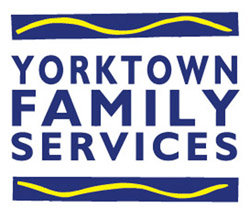“It’s not the load that breaks you down, it’s the way you carry it” Lou Holtz
Stress is something that many people experience when they are feeling weighed down and struggling to cope with demands. There is a complex relationship between stress and physical health: stress can cause physical symptoms and illness, and physical illness can increase stress.
Stress is your body’s way of responding to any kind of demand. It can be caused by both good and bad experiences. When people feel stressed by something going on around them, their bodies react by releasing chemicals into the blood. These demands can be related to finances, work, relationships, and other situations, but anything that poses a real or perceived challenge or threat to a person’s well-being can cause stress (according to Medical News Today)
Stress can also be a motivator. It can be essential to survival. The “fight-or-flight” mechanism can tell us when and how to respond to danger. However, if this mechanism is triggered too easily, or when there are too many stressors at one time, it can undermine a person’s mental and physical health and become harmful.
Factors of the environment that trigger this stress reaction are called stressors. Examples include loud noises, aggressive behavior, a speeding car, scary moments in movies, or even going out on a first date. The more stressors we experience, the more stressed we tend to feel.
SYMPTOMS OF STRESS
Signs that you are over-stressed may include:
- Feelings of irritability, sadness or guilt
- Change in sleep patterns
- Change in weight or appetite
- Difficulty in concentrating or making decisions
- Negative thinking
- Loss of interest, enjoyment or energy in something you used to enjoy
- Restlessness
HOW TO COPE WITH STRESS?
Because everyone is different, there is no single way to cope with stress. However, according to the Government of Canada, there are a number of approaches you can try to deal with short and long term stress.
- Identify your problems. What is causing your stress? It can be your job, a relationship or another source altogether. Is an unimportant surface problem masking a deeper one? Once you know what the problem is, you can do something about it.
- Work on solutions. Start thinking about what you can do to relieve the problem. Take control over the issues you can manage. This might mean looking for another job, talking with a health professional about personal problems or a financial counsellor. Also ask yourself what will happen if you do nothing. Once you make some changes to deal with the issue, you will take pressure off yourself.
- Talk about your problems. Friends, work colleagues and family members may not know you are having a hard time. If you talk to them about it, it may help in two ways. First of all, just by venting your feelings, you will relieve some stress. Secondly, they may suggest solutions to your problems. If you need to talk to someone outside your circle of family and friends, speak to your family physician or contact a mental health professional.
- Learn about stress management. In addition to health professionals who specialize in stress, there are many helpful books, films, videos, courses and workshops available to help you learn stress management techniques.
- Reduce tension. Physical activity is a great stress reducer. Walk, do some exercises or garden to relieve your stress. There are also relaxation exercises you can learn that will take the pressure off, such as deep breathing and stretching your whole body. Tension meditation and progressive relaxation are techniques that work for many people.
- Take your mind off your problems. By reading, taking up a hobby or becoming involved in sports, you can give yourself a `mental holiday’ from stress. It will also give you distance from your problems, so that they become easier to solve.
- Try not to be too hard on yourself. Stress can cause lots of negative thinking. You may notice yourself saying things like “I can’t, won’t, should, must”. Be realistic. Find realistic solutions you can achieve in steps that will bring success.
If you would like to talk about your stress or the stressors in your life, feel free to head over to our “what’s up” walk-in any time, no appointment necessary.
No issue is too small or too big. We can help.





